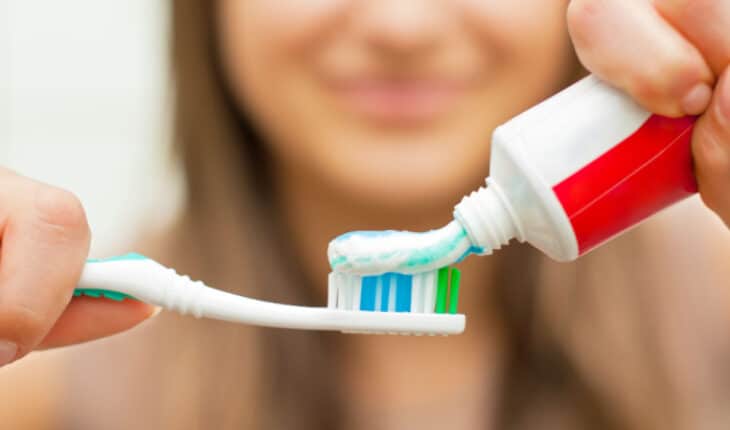Brushing for brain health: Recent research shows that how you brush your teeth could be linked to conditions such as dementia, stroke, cardiovascular disease and cancer. Dr Mafalda Queiroz, Principal Dentist at the York Dental Suite and Susan Saunders, Goldster Health Coach discuss the findings.
It is now thought that something as simple and prosaic as teeth brushing may have significant ramifications for our health in general and that poor oral health may lead to conditions such as cognitive decline and stroke. According to the July issue of Neurology magazine, if people are missing teeth or have a gum condition called Periodontitis, then it can lead to parts of the brain atrophying as they age. What’s more, other research found that gum disease, missing teeth and poor oral health could lead to poor brain health in general and an increased risk of stroke.
“When someone loses their teeth prematurely due to gum disease, this has a knock-on effect on the brain, causing a cognitive decline effect and has been shown to increase the risk of dementia,” says Dr Mafalda Queiroz. “This comes as no surprise to me because historically, there’s been a relationship between oral health and general health: what happens in our mouths can affect general health and quality of life.”
Loss of teeth can have an impact on diet. People without teeth have difficulty chewing and biting and don’t get all the nutrition from their food because they’re not breaking it down properly. This affects absorption and leads to a lack of nutrients, especially B vitamins, which are crucial vitamins for brain health. “Regardless of your age, it’s crucial good oral health habits are practised,” continues Dr Mafalda, “brush twice a day for two minutes each time with a fluoride toothpaste. During my routine dental examinations, I discuss these links with all my patients so that they fully understand the impact of oral health.”
Early warning signs and symptoms of gum disease include swollen gums, tenderness, bleeding on brushing and bad breath, states Dr Mafalda. “Visit a dentist if you are worried and for more advice.”
She also warns about the links between brushing teeth and brain health generally. “A recent study shows that poor oral health can lead to increased risk of stroke, hypertension and cardiovascular diseases. This helps us understand the risk factors to these systemic conditions, reduces time and financial burdens to the healthcare system and helps increase quality of life for an ageing population.”
Susan Saunders, Goldster Health Coach says this: “I’m not surprised at all at the findings of these studies. I’ve written about this quite a bit. There is a clear link between poor oral health and poor brain health.”
She urges us to think about the geography of it, “If you think about it, poor oral health – gum disease, inflammation in the mouth – is very close to your brain.” She notes that in particular gingivitis (gum inflammation) is found in the Alzheimer’s brain. “It’s such a simple protocol to look after our teeth, but it profoundly affects health, especially brain health.”
She advises not to let tartar build up on teeth and gums because it can cause a bacterial infection in the soft tissues of the mouth and that in turn can cause inflammation. Alzheimer’s is a disease of inflammation in the brain.
“Inflammation in the mouth can migrate through the blood-brain barrier and get into the brain. Some bacteria and toxins can cross that barrier, and gingivitis is one of them. It sets up shop in the brain and causes inflammation in the brain, which can lead to Alzheimer’s. The bacteria crosses the blood-brain barrier, and there is an increased build-up of amyloid beta, creating plaques in the brain associated with Alzheimer’s.”
According to Susan, it’s not as simple as saying, “Brush your teeth, and you’ll avoid Alzheimer’s,” but it’s an excellent place to start.
She advises seeing a hygienist regularly as well as a dentist. If you go once a year or once every six months for a check-up with the dentist (depending on the state of your teeth and your conscientiousness with oral care), you should also be going once every six months for a check-up with the hygienist.
“Stroke, heart disease and some types of cancer are also linked to gum health,” Susan states. “There’s a well-known German dental health expert, Professor Eberhard, who claims, ‘there’s no point going to the gym, in a bid to increase your lifespan, if you’ve got gum disease.’ The fact is that gum disease impacts longevity. And there is a danger that gum disease can cancel out all the benefits of the gym.”
Of course, Susan explains that you need to know what to look for regarding gum disease “so if you have any concerns,” says Susan, “go and talk to your dentist. It is so vital.”
- The da Vinci 5 Robot Is Set To Transform Bariatric Care: - 31st March 2025
- Beyond money: the hidden drivers fuelling child food insecurity - 31st March 2025
- Tobacco and Vapes Bill - 31st March 2025






